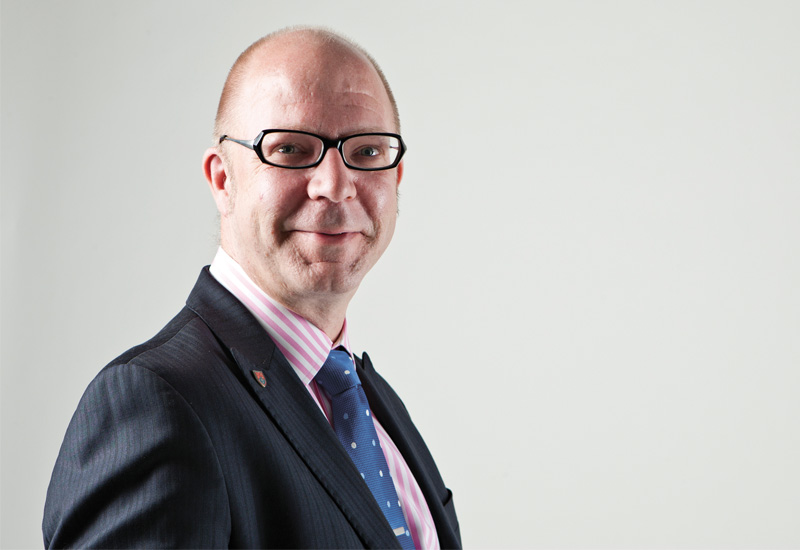Social media can be a lot of fun and an excellent way to engage guests and visitors, but that doesn’t mean you shouldn’t spend some time thinking about the darker sides of social media platforms and online communications: social media crises and meltdowns.
I’m not just talking about PR disasters caused by careless posts on Facebook or Twitter, like the recent post from Subaru Middle East in the wake of a tragic traffic accident on Sheikh Zayed Road (see http://bit.ly/17ua599), but the role social and digital media play in today’s ever-connected communications world.
It could be something that happened in your hotel, or something somebody alleges has happened in your hotel. It could be something that has happened in the neighbourhood, city, or country you operate in.

| Advertisement |
Crises, even if they initially begin offline, can quickly spread onto social media platforms where they have the potential to go ‘viral’ and reach thousands of people in a short space of time.
If your hotel has a crisis plan, does it contain information and instructions about your social and digital media platforms? Is it updated regularly? Do you have clear policies in place covering matters like who is allowed to post what and who should reply to negative or ‘crisis’ comments?
Develop a Plan
Good crises management starts with knowledge and thoroughly compiled and regularly updated crises manuals.
Ensure that you monitor all online conversations and buzz about your hotel on an ongoing basis. You don’t necessarily need expensive software for this. Try http://topsy.com/, http://www.socialmention.com/, or http://www.whostalkin.com/, and also make sure you have suitable Google Alerts set up, which cover all eventualities and are set to “As it happens” rather than “Once a day” or “Once a week”.
Whoever monitors your online buzz should also be aware of what classifies as potentially “crises-related” and how and to whom it should be passed on. Speed really matters when dealing with online crises, so you should have senior executives available around the clock to make a call on questionable posts or mentions.
In today’s online world, it can be easy to forget that traditional PR laws still apply. Frequently, hotels retain several agencies for PR support, so your online crises plans should reflect this and ensure that everybody necessary is kept in the loop.
Often, a well-worded and timely statement is all it takes to stop an incident turning into a crisis. At other times, an organised “social media silence” may be a more suitable solution.
Shutdowns or temporary suspensions of platforms like Facebook and Twitter should only be seen as your last resort. Personally, I liken them to locking the front doors of your hotel and letting everybody stand outside in the scorching sun.
While you may be able to shut down or suspend your social outposts, you cannot shut down conversations and mentions. It may be disheartening to see repeated negative mentions or comments on your pages, but at least you know who is saying what and are able to measure ‘sentiment’ more accurately than if you close communication channels.
I’m aware that many colleagues will think differently, but I really think that in today’s connected world and the openness brought about by social media platforms, trying to suppress comments or mentions backfires more often than not.
Moving On
If your online team made a mistake and put out a carelessly worded or otherwise inappropriate post, apologise. Sincerely, publicly, and quickly. Then move on. If it looks as if you are faced with a larger crisis, step up your monitoring efforts, put out as open a statement as the situation allows, and keep engaging with your fans and followers.
Facebook gives you the option to “hide” posts — this is almost always preferable to deleting them. You’re already facing a crisis — the last thing you need is to be accused of censorship.
Having said that, sometimes, there may not be any other way to respond, so make sure your teams are aware of how to delete or report inappropriate posts on all your platforms.
Finally, make sure that you nurture and engage with your most loyal online connections on an ongoing basis — you will be surprised how often they will defend your property publicly in the face of negative PR. Online brand ambassadors really are your secret weapon and you should look after them.
Social and digital media are here to stay and their use and scope is only going to increase over the coming years. If you haven’t thought about their potential role in your crises communications, or if you haven't incorporated them into your crisis management plans, now is the time to do so.
Whatever you do: Keep it social!
About the Author:
Martin Kubler is owner, director and chief cook and bottle washer of Iconsulthotels FZE, an ultra-boutique hospitality consultancy in Dubai.
Email: info@iconsulthotels.com or visit facebook.com/iconsulthotels









 Search our database of more than 2,700 industry companies
Search our database of more than 2,700 industry companies









